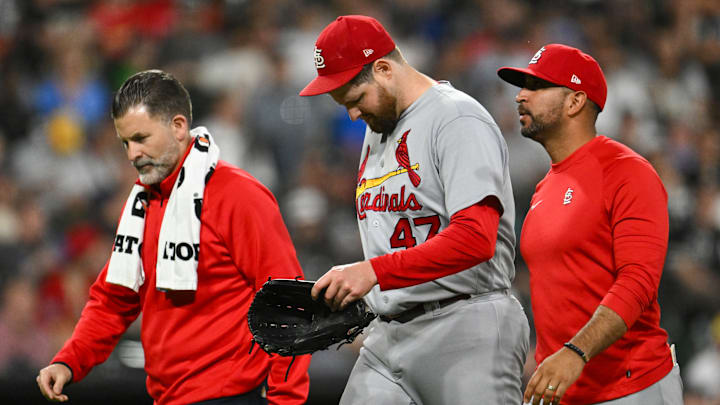3) Yamamoto also changed the state of the trade market.
The trade market, the place the Cardinals were likely to go in the first place, is also different than it was just a few days ago. Since the Dodgers nabbed Glasnow, no major dominoes have fallen. Cease, the presumed best option available, remains in Chicago. However, with Yamamoto gone, there are simply fewer options available.
Moreover, the effects his deal had on the free agent market won't just be felt by the Cardinals. They will also affect a number of other mid-market teams. These teams, after being priced out of the free agent market, will likely turn their attention to the trade market. In a recent report, Ken Rosenthal noted that the Reds and Orioles remain linked to Cease. When someone finally does land Cease, the rest of the teams who miss will inevitably pivot, raising the cost of another piece. It's truly a seller's market this off-season. Some reports have suggested that Cease may now cost three or four top-end prospects. In Cardinals' terms, that could mean Masyn Winn, Tekoah Roby, and Brendan Donovan. That kind of deal will cause Cardinals fans and officials alike to pause.
It's going to be difficult to land a starter. What's even scarier to consider? The Dodgers may not be done! They've been linked to Cease since acquiring Yamamoto. They may also be interested in some low-profile targets. If their monstrous off-season has taught us anything, it's that we should never count them out. The Dodgers are an all-powerful, ravenous, machine right now. If they seriously pursue any target this off-season, they will land it. Now, that doesn't just mean Cease. The Dodgers are rumored to be involved in the infield and outfield markets, as they look to further bolster their super squad.
